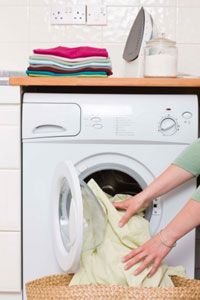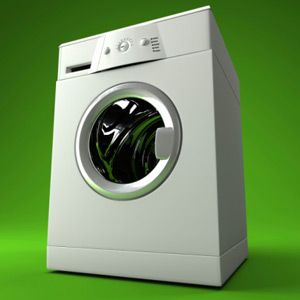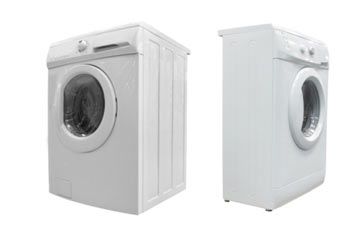So your old clothes dryer is on its last leg -- or its last load -- and you're looking to replace it. You'd really like a dryer that will save you a little money and energy, right? Maybe you've already begun to research dryers online or at your local appliance store. The high-efficiency washers and dryers probably caught your eye with their sleek lines, high-tech interfaces and special "eco" features. It seems like these appliances can do everything but fold up your laundry and put it away. And because these appliances are labeled as "high-efficiency," they promise the energy and money savings you're looking for.
But what does high-efficiency mean? How do you figure out which dryer is the most efficient? The efficiency of a dryer is based on how well it removes moisture from clothes using a given amount of energy, or how many pounds of clothing can be dried per kilowatt-hour (kWh) [source: Bansal, Flex Your Power]. Here are some of the things that can affect the efficiency of your dryer:
Advertisement
- How much water is left in the clothes by your washing machine
- Air temperature inside the dryer
- Ambient humidity inside the dryer (which changes as the clothes dry)
- Flow of air across the clothes
All dryers manufactured in the United States have to meet certain minimum efficiency requirements set by the Department of Energy [source: Eastment]. However, energy-efficient dryers have to exceed those standards. According to EnergyStar, the program that certifies energy-efficient appliances, a high-efficiency dryer should be at least 20 percent more efficient than a regular dryer [source: Taddonio].
Considering that of all the appliances in the American household, the dryer is the second largest consumer of energy after the refrigerator, it seems like a no-brainer to get one that's as energy-efficient as possible. But do these high-efficiency models actually exist? Find out on the next page.
Advertisement



